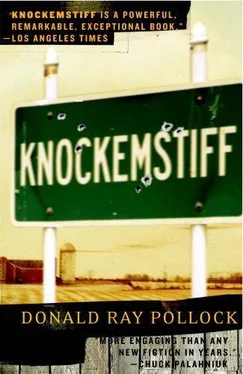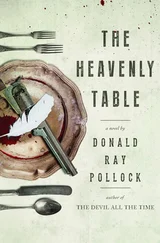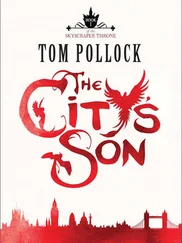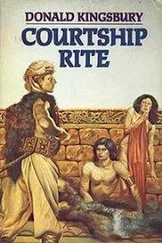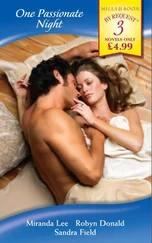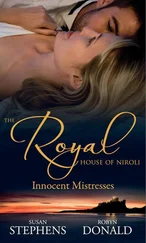Just then a scream erupted from inside the house, followed by a loud crash. When William saw his sister start running toward the porch, he turned and handed me the stick. “Here,” he said. “I better get in there. Aim for their heads.”
“Wait, William,” I blurted out. I stood there trying to think of something brave to say, but we both knew that I was scared shitless of his father. He cocked his head and looked at me impatiently. “Is there anything I can do?” I finally said.
“Theodore,” William said, his face suddenly breaking into a crazy grin, “we’re gods, remember? Shit, we can do anything.” Then he turned and charged bravely at the house, pushing Lucy out of the way and disappearing through the back door.
All of the ants were dead. William had destroyed the entire colony once again. As I started across the yard, my mother and some guy with fat sideburns pulled in our driveway in a homemade convertible. She was always bumming lifts from the people that she worked with at the hog plant. He was steering the car with one hand, grabbing at my mom’s tit with the other. They were both laughing. When she looked up and saw me walking toward them carrying the charred stick like a smoking rifle, she pulled her blouse back down and waved wildly in my direction. Then, jumping out of the car, she gave her ride a peck on the cheek and ran inside the house.
Later that night, my mother told me again that I looked just like my father, and I wondered if that was make-believe too. She was lying on the bed in her silk robe, the scent of her perfume filling the hot room with flowers. Reaching over, she turned down the lamp that sat on the nightstand. Then she tilted her head back, and taking my hand in hers, guided the kitchen knife to her soft throat. “Okay,” she whispered, closing her eyes, “who do you want to be tonight?”
Her moist pale skin glowed in the dim light, and a moth fluttered madly against the rusty window screen. I could feel her body trembling against the thin sharp blade. Outside, a thousand throbbing crickets urged me on, but I stood there a long time trying to decide. “Teddy,” I finally said, pretending it was true. “I just want to be Teddy.”
NETTIE RUSSELL DIED IN THE SPRING, AND LEFT HER GRANDSON, Todd, an old Ford Fairlane and a Maxwell House coffee jar with two thousand dollars in it, a fair sum of money in 1973. Her only daughter, Marlene, had been a wild girl who had tossed her life away one snowy night when Todd was just two years old. A sheriff’s deputy had found her in the backseat of a car at the edge of Harry Frey’s orchard with a strange man from town lying on top of her, both of them stiff and blue and puffed up like toads from carbon monoxide. And since none of Marlene’s boyfriends had the nuts to step up at the funeral and offer to help out with the orphaned boy, not even after a special plea from the preacher, Nettie had had no choice but to raise him.
When she handed over the inheritance, just a few hours before she took her last, wheezy breath, Nettie told her grandson, “Toddy, you never did belong here. You take this, and you go somewhere else before you get hurt.” He had just turned nineteen, and everyone in the holler had always joked that he had too much sugar in him for a boy. For several years, he had dreamed of moving away and selling real estate, maybe working in a bank. The fantasy of someday coming back to Knockemstiff dressed in a shiny burgundy suit and carrying a leather briefcase was one that had kept both him and his grandmother going during the last weeks of her long illness.
He should have headed for town as soon as she handed over the keys and the money, but Todd discovered that he was afraid of leaving the holler, even if it was bad. He kept stalling, hanging around the county, and within a month of the old lady’s passing, he and Frankie Johnson moved into a fish camp that sat on the high side of Paint Creek. People couldn’t figure it out. Frankie was rough as a cob and liked the splittails; Todd talked like a prissy girl in a beauty pageant and walked on his toes like his feet were full of glass.
Though they had known each other all their lives, they didn’t start running together until one night after a beer party over by Copperas Mountain. Todd had been sleeping in the Fairlane ever since his grandmother’s funeral, riding around listening to love songs on the radio and wishing his uncle Claude would get colon cancer. As soon as they’d returned from the cemetery, Claude had pitched Todd’s clothes out into the muddy yard and told him to hit the road. “Mom wouldn’t let me kick you out when she was alive, but she can’t stop me now,” he told his nephew. Except for the ghost he’d seen at his grandmother’s headstone, Todd hadn’t spoken to a soul in three weeks. He was just looking for a safe place to park for the night when he came upon the beer party. Loneliness always got him into trouble quicker than anything, and he knew that, but he pulled over and shut off the engine anyway.
He sat down under the canopy of a willow tree a good ways off from the bonfire and listened to the laughter and the wild talk. Nobody invited him over, but he didn’t expect them to. People in the holler, especially the men, treated him with contempt at best. Tonight though, after the keg went dry, Frankie Johnson walked over and sat down on a log near him. “You got any money, Russell?” Frankie asked.
Todd thought for a moment. Though Frankie had never been what you’d call friendly, at least he’d left him alone when the others cussed him or chased him down the road throwing rocks. “Little bit,” Todd said warily.
“Why don’t we go into town and get some breakfast?” Frankie said. He looked off when he said it, like he was ashamed. “They say that Frisch’s Big Boy is open all night now.”
“Why?”
Frankie let out a sigh. He picked up a rock and squeezed it, then pitched it into some weeds. “I’m hungry, that’s why,” he said.
A car wreck had left Frankie with a long purple scar that ran down the side of his face like a crack in an egg, but Todd could still remember when he’d been a handsome man. Todd looked over at him, chewed his lower lip, considered the dangers and the possibilities. The possibilities won out. “Okay,” he said.
A few of the drunks around the fire hooted when they saw Frankie start to climb into the old Fairlane. Todd was afraid there might be some trouble, but Frankie just flipped them the bird and settled back in the seat. Someone threw a beer bottle as they were turning around in the dirt lane, and it bounced off the fender. “Stupid sonsabitches,” Frankie muttered. Then he closed his eyes and snored all the way to town. His rotten breath filled the front seat. Todd studied the raised scar in the headlights of oncoming cars and fought the desire to run his finger over it. He wondered if Frankie knew about the two thousand dollars.
As he ate his breakfast at Frisch’s Big Boy, Frankie told Todd that the only thing he’d ever loved in his life was a yellow ’69 Super Bee that he’d owned when he was seventeen. “I remember that car,” Todd said.
Frankie smiled, stuffed some more egg into his mouth. “Everybody knew my Super Bee,” he said. “Sonofabitch would fly. By God, I ever get a chance, I’ll have another one just like it.”
“Ain’t that the one you wrecked?” Todd said.
Frankie stopped chewing and nodded. “Worst day of my life so far,” he said. “Had some bitch call me Frankenstein the other night.” Three years ago, he had missed the curve at Pumpkin Center, and when the Super Bee smashed into a telephone pole, he went face-first through the windshield. Everything might have turned out okay, but he was in the middle of a damn good binge, and he drank three more days before someone finally took him to the hospital to see about getting his face sewn up. By then, everything was starting to heal over, and there wasn’t any way that the doctor could pull the big gash closer together. He told Frankie it was a miracle he hadn’t bled clear out.
Читать дальше
